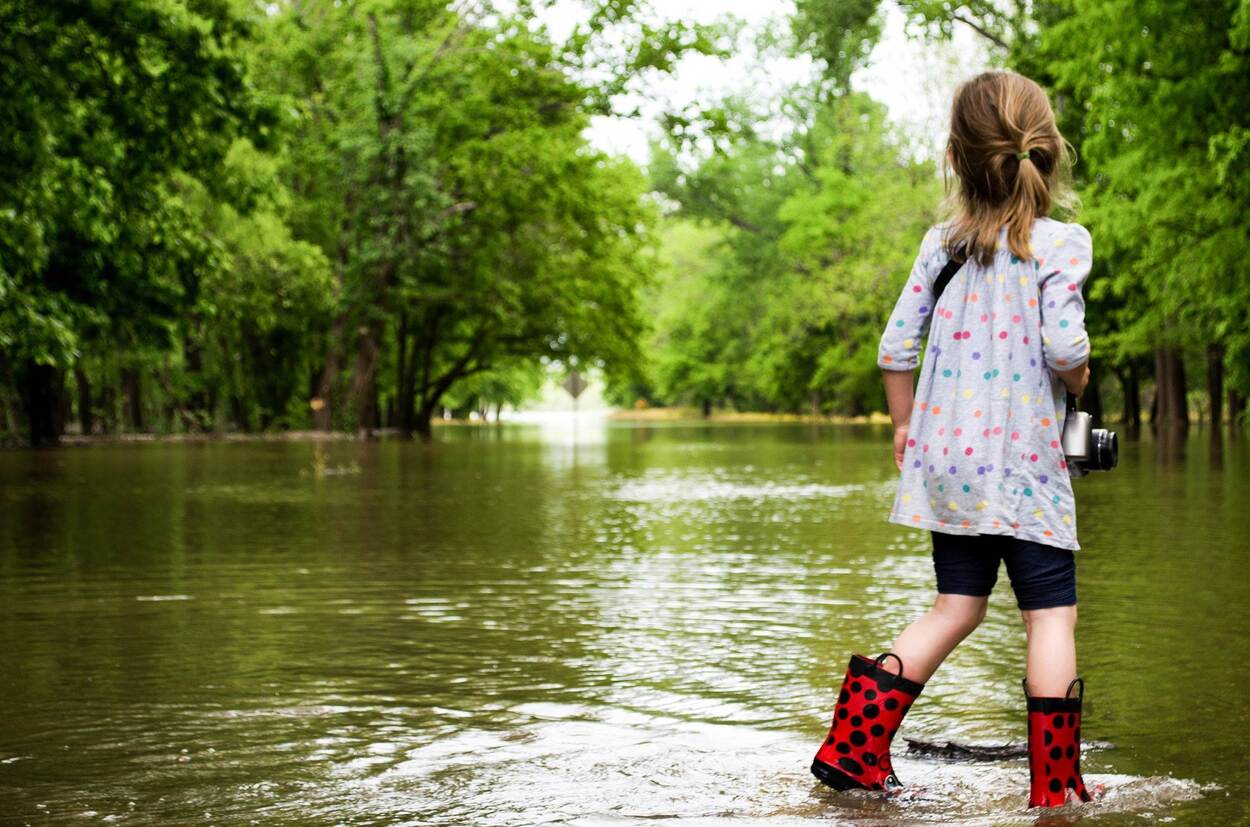Lisbeth Hall is a senior advisor at RIVM, specialising in environmental public health. Her work is focused on the Netherlands, but also far beyond its borders. Climate change is internationally recognised as the most important health threat of this century. In an international context, RIVM works with peer institutes and organisations to contribute to generating and sharing knowledge and solutions that address this huge challenge.
'We can learn so much from experiences in other countries, and exchange knowledge'
'In terms of flood response, the appropriate recommendations and action perspectives should already be formulated wherever possible'
Growing evidence shows that climate change is leading to more extreme weather. “We see it in the heat waves in North America emerging in unexpected locations, and in the severe floods in Germany, Belgium and southern Limburg,” Lisbeth Hall says. “The extremes are becoming more extreme.”
The IPCC report of August 2021 confirms these findings. The impacts of global warming can now be observed all over the world as a result of greenhouse gas emissions from human activities. It is also likely that the 1.5-degree threshold in temperature rise will be reached between now and 2040; faster than previous projections.
Significant threat to health and well-being
From an international perspective, climate change is seen as a significant threat to the health and well-being of the human population. Addressing climate change is an urgent issue.
The United Nations Climate Change Conference of the Parties (COP26) is taking place in Glasgow from 31 October to 12 November 2021. Health in relation to climate change is a stronger focus than ever in Glasgow, with a WHO-initiated Health Programme.
The WHO Working Group on Health in Climate Change, whose members include Brigit Staatsen and Lisbeth Hall of RIVM, has just released a paper to support policy-makers (see link below).
Skin cancer and heat
Lisbeth Hall and other RIVM researchers recently published a report on the health effects of climate change in the Netherlands, comparing effects in a scenario with and without international climate policy. Read more about the study elsewhere in this magazine.
One of the conclusions in the report was that more warm, sunny days lead to an increased risk of skin cancer. Lisbeth Hall: “We keep having to consider: what exactly can be attributed to climate change? Warm, sunny weather prompts more sun exposure, but what else plays a role? Because detecting more skin cancer could also mean that people are sunbathing without sunscreen, or it could mean that better diagnostics are available."
In another study, RIVM and international partners examined heat-related mortality in relation to climate change. The findings showed that 31% of heat-related deaths in the Netherlands can already be attributed to climate change. That amounts to almost 250 deaths a year.
International efforts to define health indicators
The International Association of National Public Health Institutes (IANPHI) also views climate change as one of the major public health threats of our time. RIVM is in the IANPHI working group on public health and climate change. Representing a number of sister institutes, including in England and France, the working group drew up a roadmap outlining actions on climate and health.
One of the actions in the roadmap is developing health indicators for climate change. “Health monitoring normally involves looking at illnesses and deaths – morbidity and mortality,” Lisbeth Hall explains. “But the data we have on diseases that could be affected by climate change are often insufficient. That is why we are also looking at exposure indicators, such as temperature, air pollution and pollen levels.”
“In the Netherlands, for example, we see that plants start flowering earlier, and that the flowering season also ends later,” Hall says. “That means the hay fever season also starts earlier and lasts longer. But we do not know exactly how many people in the Netherlands have hay fever, or the extent to which they use medication. Many hay fever patients do not go the doctor and they buy their medication from the chemist or pharmacy without a prescription.”
These indicators will also make it easier to monitor the effects of adaptation or mitigation measures. “We can learn so much from experiences in other countries, and exchange knowledge,” Lisbeth Hall says.
Consequences of climate change for mental health
Extreme weather is also associated with other aspects of health. “for example with flooding, we know that it can also have an impact on your mental health,” Hall says. “Being evacuated, losing possessions, or even losing your home. It puts a lot of pressure on your mental well-being.” Extended periods of drought can have similar effects, especially on farmers who experience crop failure. In such situations, knowledge about disaster recovery and mental health is needed in order to minimise and monitor the impacts on health.
RIVM has gained much experience and knowledge in this area. Hall also notes the importance of effective preparation and cooperation with local experts.
“Take the flooding in southern Limburg in July, which led to the spread of contaminated sludge. What should people do or not do in that situation? The appropriate recommendations and action perspectives should already be formulated wherever possible. RIVM can definitely play a role in generating knowledge to prepare for extreme weather and for the response and recovery phases. Both in the Netherlands, in supporting the Municipal Public Health Services (GGDs), and across the border.”
Would you like to know more?
- IANPHI Roadmap for Action on Health and Climate Change
- RIVM website Climate change and Health
- Paper WHO/Europe Working Group on Health in Climate Change
- RIVM report “International climate policy: health gains in the Netherlands through limiting climate change”
- European Climate and Health Observatory
- Article on heat-related mortality
- RIVM's role in International project Blue Health








